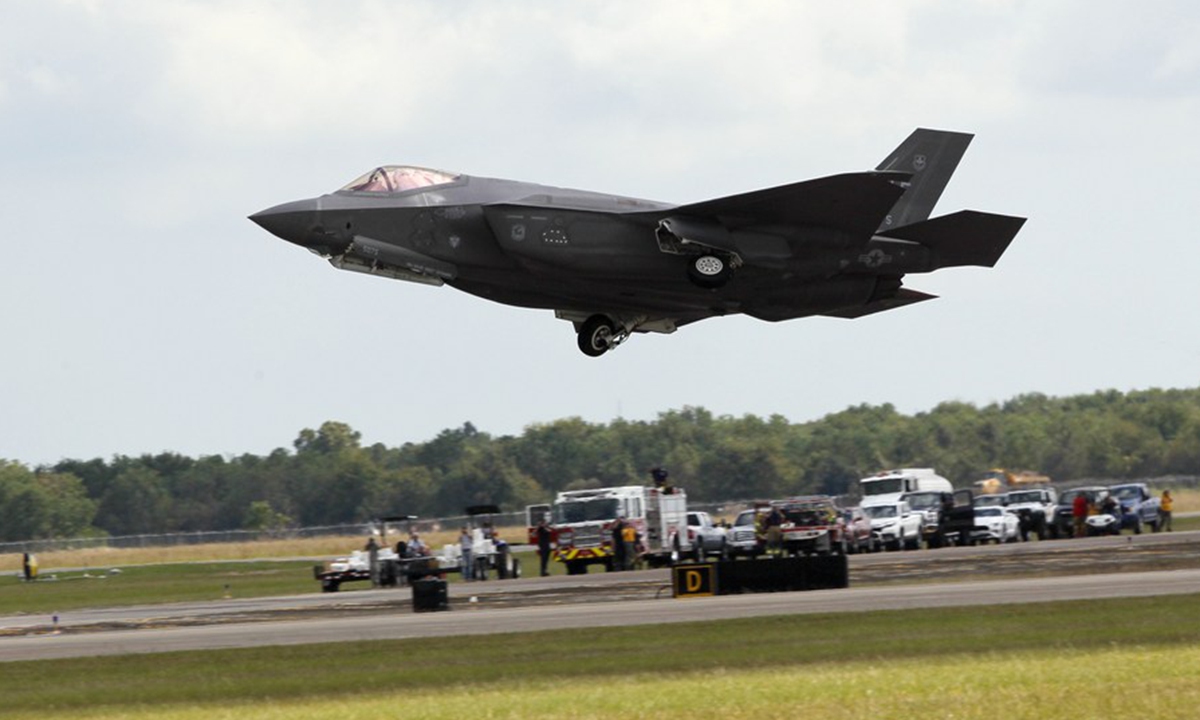Liu Xuanzun

An F-35 fighter jet performs during the annual Wings Over Houston Airshow at the Ellington Airport, state of Texas, the United States, Oct. 19, 2019. (Xinhua/Song Qiong)
China’s recently announced export controls on gallium could hit the US defense industry, as this material, with China with China being the leading producer and supplier in the world, is widely used in advanced radar systems installed on warplanes, warships and ground installations, experts said on Tuesday.
Starting August 1, China will impose export controls on gallium and germanium as well as several chemical compounds involving the two materials, according to a notice China’s Ministry of Commerce and General Administration of Customs released on Monday.
Items meeting certain characteristics shall not be exported without approval, the notice stated.
The move aims to safeguard national security and interests, it said.
Gallium and germanium are used in the making of semiconductors and other electronic components, observers said.
Chinese military analysts said that the export controls, particularly those on gallium, could hit the US defense industry at a time when the US is attempting to militarily contain China’s development.
Gallium arsenide (GaAs) and gallium nitride (GaN) are the most basic materials in the making of the transmit receive modules on active electronic scanning array (AESA) radars, which are widely used on modern warplanes, warships and ground installations, Fu Qianshao, a Chinese military aviation expert, told the Global Times on Tuesday.
For example, US’ defense companies Raytheon and Northrop Grumman are reportedly introducing new AESA radar systems based on GaN, which provide superior performance than previously used GaAs. The latest radars for the F/A-18E/F carrier-based fighter jet and the F-35 stealth fighter jet also incorporate GaN.
Both GaN and GaAs are included on China’s list of export controls.
China accounts for about 85 percent of global gallium reserves, meaning that it is unlikely for the US and other Western countries to avoid using the Chinese materials without significant cost, Fu said.
The US frequently deploys its warplanes and warships on China’s doorsteps for close-in reconnaissance, provocative transits and exercises as well as showcasing deterrence purposes, in addition to continuing arms sales to the island of Taiwan, which are obvious attempts to contain China’s development and harm China’s national security and interests, analysts said.
No comments:
Post a Comment